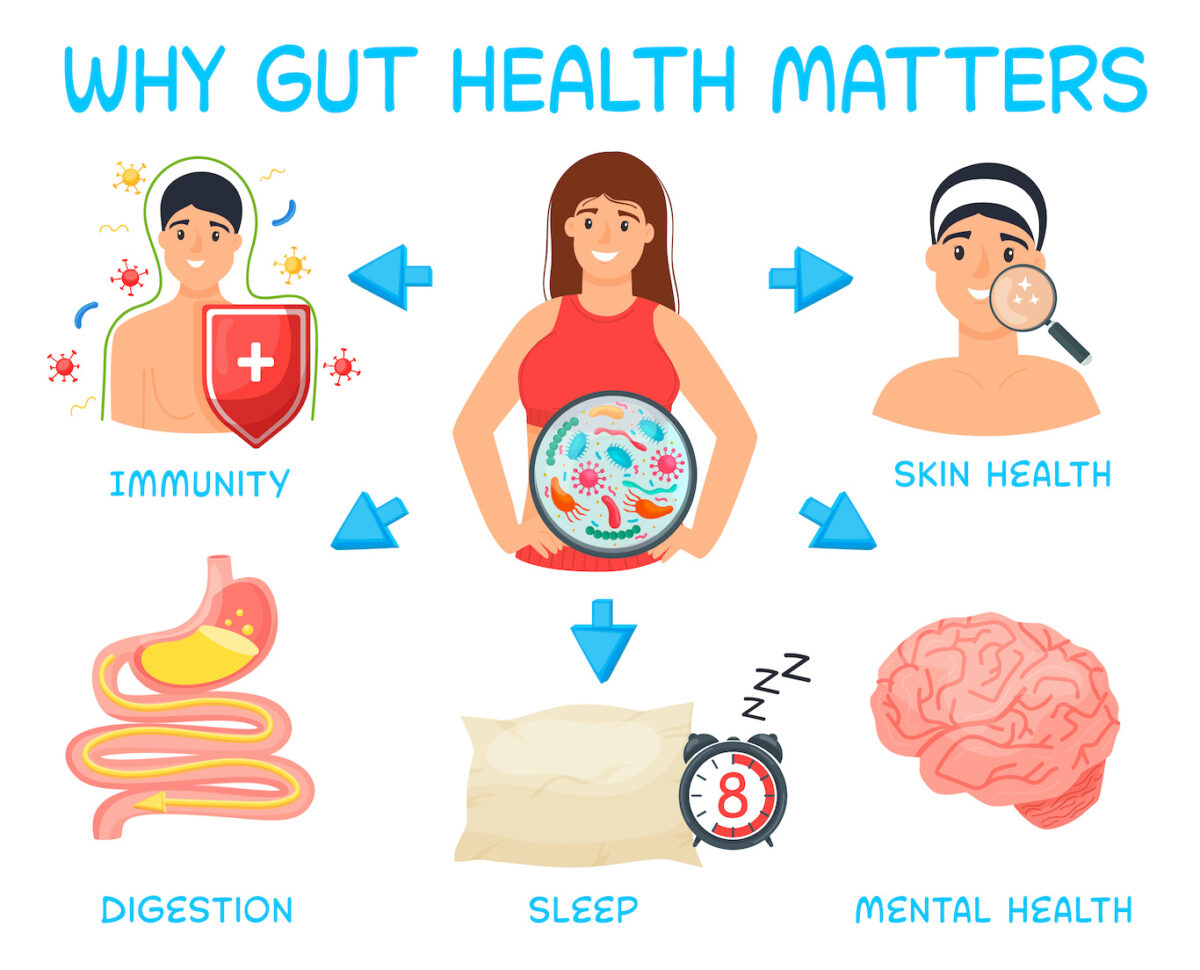Gut Microbiome and Nutrition: How Your Diet Influences Gut Health

In recent years, the gut microbiome has emerged as a crucial factor in overall health, influencing everything from digestion to mental well-being. This complex community of trillions of microorganisms residing in our intestines plays a vital role in maintaining our health. One of the most significant influences on the gut microbiome is our diet. Understanding how different foods impact gut health can empower us to make dietary choices that support a healthy and balanced microbiome.
What is the Gut Microbiome?
The gut microbiome consists of bacteria, viruses, fungi, and other microorganisms living in the digestive tract. These microorganisms are essential for various bodily functions, including:
- Digestion and Metabolism: Helping break down food and absorb nutrients.
- Immune System Regulation: Protecting against harmful pathogens.
- Synthesis of Vitamins: Producing essential vitamins like B and K.
- Mental Health: Influencing mood and cognitive functions through the gut-brain axis.
The Impact of Diet on the Gut Microbiome
Our diet directly affects the composition and diversity of the gut microbiome. Different foods promote the growth of specific types of bacteria, which can have positive or negative effects on health.
1. Fiber-Rich Foods:
- Benefits: Dietary fiber, found in fruits, vegetables, whole grains, and legumes, is a primary food source for beneficial gut bacteria. These bacteria ferment fiber, producing short-chain fatty acids (SCFAs) like butyrate, which support gut health and reduce inflammation.
- Sources: Apples, carrots, oats, beans, lentils, and flaxseeds.
2. Fermented Foods:
- Benefits: Fermented foods are rich in probiotics, live beneficial bacteria that can enhance gut health by increasing microbial diversity.
- Sources: Yogurt, kefir, sauerkraut, kimchi, miso, and kombucha.
3. Polyphenol-Rich Foods:
- Benefits: Polyphenols are plant compounds with antioxidant properties that promote the growth of beneficial bacteria and inhibit harmful ones.
- Sources: Berries, dark chocolate, green tea, red wine, and nuts.
4. Prebiotic Foods:
- Benefits: Prebiotics are non-digestible fibers that feed beneficial gut bacteria, helping them thrive.
- Sources: Garlic, onions, leeks, asparagus, bananas, and chicory root.
5. Animal-Based Foods:
- Benefits and Risks: Moderate consumption of lean meats and fish provides essential nutrients like protein, iron, and omega-3 fatty acids. However, high consumption of red and processed meats can promote the growth of harmful bacteria linked to inflammation and disease.
- Sources: Lean poultry, fish, eggs, and limited red meat.
6. High-Fat and High-Sugar Foods:
- Risks: Diets high in saturated fats and sugars can negatively impact the gut microbiome by promoting the growth of harmful bacteria and reducing microbial diversity. This imbalance can lead to inflammation, obesity, and other health issues.
- Sources to Limit: Processed snacks, sugary beverages, fried foods, and high-fat dairy products.

Tips for Maintaining a Healthy Gut Microbiome
- Eat a Diverse Diet: Incorporating a wide variety of foods ensures a diverse gut microbiome. Aim to include different fruits, vegetables, whole grains, lean proteins, and fermented foods.
- Increase Fiber Intake: Focus on fiber-rich foods to nourish beneficial gut bacteria. Gradually increase fiber intake to avoid digestive discomfort.
- Include Fermented Foods: Regularly consume yogurt, kefir, sauerkraut, and other fermented foods to boost probiotics.
- Limit Processed Foods: Reduce consumption of processed foods high in fats and sugars to prevent the growth of harmful bacteria.
- Stay Hydrated: Drinking plenty of water supports digestion and helps maintain a healthy gut environment.
- Manage Stress: Chronic stress can negatively impact gut health. Practice stress-reducing techniques like mindfulness, exercise, and adequate sleep.
- Avoid Unnecessary Antibiotics: Antibiotics can disrupt the gut microbiome. Only use them when prescribed by a healthcare professional.
Summary:
- Summary of “Gut Microbiome and Nutrition: How Your Diet Influences Gut Health”
- Gut Microbiome Overview:
- Composed of bacteria, viruses, fungi, and other microorganisms in the digestive tract
- Essential for digestion, metabolism, immune regulation, vitamin synthesis, and mental health
- Diet’s Impact on Gut Microbiome:
- Fiber-Rich Foods:
- Promote beneficial bacteria
- Produce short-chain fatty acids (SCFAs) for gut health
- Examples: Apples, carrots, oats, beans, lentils, flaxseeds
- Fermented Foods:
- Increase microbial diversity with probiotics
- Examples: Yogurt, kefir, sauerkraut, kimchi, miso, kombucha
- Polyphenol-Rich Foods:
- Support beneficial bacteria and inhibit harmful ones
- Examples: Berries, dark chocolate, green tea, red wine, nuts
- Prebiotic Foods:
- Feed beneficial gut bacteria
- Examples: Garlic, onions, leeks, asparagus, bananas, chicory root
- Animal-Based Foods:
- Provide essential nutrients but excessive consumption can promote harmful bacteria
- Examples: Lean poultry, fish, eggs, limited red meat
- High-Fat and High-Sugar Foods:
- Promote harmful bacteria and reduce microbial diversity
- Examples to Limit: Processed snacks, sugary beverages, fried foods, high-fat dairy products
- Tips for Maintaining a Healthy Gut Microbiome:
- Eat a diverse diet with various fruits, vegetables, whole grains, lean proteins, and fermented foods
- Increase fiber intake gradually to nourish beneficial bacteria
- Regularly consume fermented foods to boost probiotics
- Limit processed foods high in fats and sugars
- Stay hydrated to support digestion and gut health
- Manage stress with mindfulness, exercise, and adequate sleep
- Avoid unnecessary antibiotics to protect the gut microbiome
- Conclusion:
- The gut microbiome is crucial for overall health, and diet significantly influences it
- Making informed dietary choices can support a healthy and balanced microbiome

This article reviewed by Dr. Jim Liu, MD and Ms. Deb Dooley, APRN.
There’s nothing more important than our good health – that’s our principal capital asset.
#medical #telehealth #umedoc






